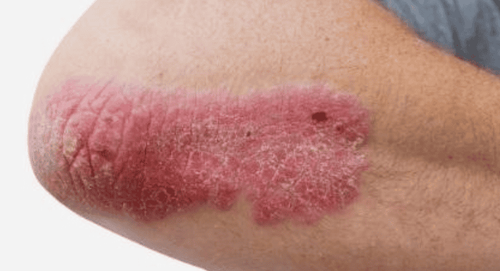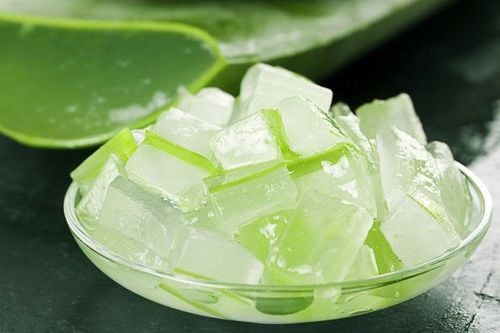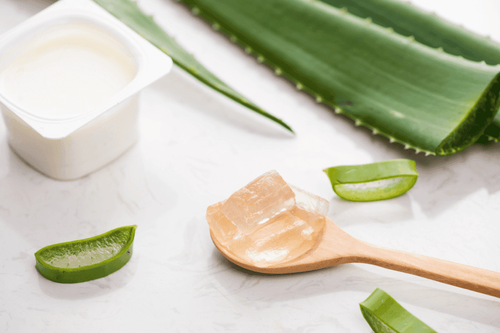This is an automatically translated article.
Aloe vera is a cactus-like plant that grows in hot, dry climates. It is used by people with obesity, diabetes, osteoarthritis, or as a gel applied to the skin for conditions such as acne, wound healing, and more. The question is whether aloe vera is poisonous and what should be noted when using it.
1. The effect of aloe vera
The useful parts of aloe vera are the gel and the latex. The gel is obtained from the cells in the center of the leaves and latex. Aloe vera gel can improve diseases like psoriasis. Additionally, Aloe Vera can speed wound healing by improving blood circulation through the area and preventing cell death around the wound. It also has the property of eliminating certain types of bacteria and fungi. Aloe latex contains chemicals that act as a laxative. Research supports the use of aloe vera in topical skin treatments. Studies have shown that aloe vera gel can be effective in the treatment of skin conditions including:
Psoriasis Seborrhoea Dandruff Mild burns Skin abrasions Radiation injured skin Herpes sores Anal fis There is also strong evidence that aloe vera juice is a potent laxative. In fact, this juice was once sold alongside over-the-counter constipation medications. But because the safety of aloe vera was not well established, the FDA banned over-the-counter laxatives containing aloe in 2002. Oral aloe vera gel may help lower blood sugar in people with diabetes. It can also help lower cholesterol.

Gel nha đam có thể có hiệu quả trong điều trị bệnh vảy nến
2. Side effects of aloe vera
When taken by mouth: Aloe vera gel is POSSIBLY SAFE when used appropriately and for short periods of time. Aloe vera gel has been used safely in doses of 15ml per day for up to 42 days. In addition, a specific gel complex (Aloe QDM complex Univera Inc) was used safely at doses of approximately 600 mg daily for up to 8 weeks. Oral aloe vera has a laxative effect, which can cause cramps and diarrhea. This can cause an electrolyte imbalance in the blood of people who eat it for more than a few days. It can also stain the colon, making it difficult to see the colon during colonoscopy. So avoid it for a month before you intend to have a colonoscopy.
Absolutely do not take aloe vera juice by mouth: Aloe latex is not safe when taken in high doses. Aloe vera latex can cause some side effects such as stomach pain and cramps. Long-term use of large amounts of aloe latex can cause diarrhea, kidney problems, blood in the urine, low potassium, muscle weakness, weight loss, and heart disorders. Taking 1 gram of aloe vera daily for a few days can be fatal. Additionally, there is concern that chemicals in aloe vera sap and/or leaf extracts may promote cancer growth. If the extract of aloe vera is to have the aloin removed then it can be a topical remedy for sunburn. Aloin found between the outer leaves of the aloe vera plant can cause colorectal cancer in mice. There have been a few reports of liver problems in some people taking aloe vera leaf extract. However, this is uncommon, as it only occurs in people who are hypersensitive to aloe vera.
When applied to the skin: Aloe vera gel is safe when applied appropriately to the skin as a medicine or as a cosmetic.
3. Special warning when using aloe vera
Pregnant or lactating women: Aloe vera gel or latex should not be taken by mouth. There is a report that aloe vera is associated with miscarriage. It can also increase the risk of birth defects. Do not take aloe vera by mouth if you are pregnant or breastfeeding.
Phụ nữ đang có thai không nên sử dụng nha đam
Children: Aloe vera gel is safe when applied appropriately to the skin. Aloe vera latex and whole leaf extract should not be taken by mouth. Children under 12 years of age may experience stomach pain, cramps and diarrhea when taking aloe vera
Diabetics: Some studies show that aloe vera can lower blood sugar levels. If diabetics take aloe vera, monitor their blood sugar closely.
Patients with intestinal diseases such as Crohn's disease, ulcerative colitis or obstruction: Do not use aloe vera latex if any of these conditions are present. Aloe vera is a gut stimulant. Remember, products made with aloe vera leaves will contain some latex.
Patients with hemorrhoids: Do not use aloe vera latex for people with hemorrhoids. It can make the condition worse. Do not take aloe vera if you have intestinal problems, heart disease, hemorrhoids, kidney problems, diabetes or electrolyte imbalance.
Patients with kidney problems: High doses of aloe vera have been linked to kidney failure and other serious conditions.
Surgery patients: Aloe vera may affect blood sugar levels and may interfere with blood sugar control during and after surgery. Stop taking aloe vera at least 2 weeks before a scheduled surgery.
Do not use topical aloe vera for deep cuts or severe burns. People who are allergic to garlic, onions, and tulips are more likely to be allergic to aloe.
4. Drug interactions when using aloe vera
If you are taking any medications regularly, talk to your doctor before you start using aloe vera supplements. It may interact with medications and supplements such as diabetes medications, heart medications, laxatives, steroids, and licorice root. Most creams and gels are fine, but the oral form can change the effect of some medicines, especially diuretics, digoxin (Lanoxin) for heart problems, blood thinners such as warfarin (Coumadin) ) and diabetes medication. And remember that aloe vera is a dietary supplement, not a prescribed drug. That means it's hard to know exactly what's in an aloe vera product.

Khi sử dụng nha đam, người dùng cần thận trọng vì nha đam có thể tương tác với các loại thuốc
Please dial HOTLINE for more information or register for an appointment HERE. Download MyVinmec app to make appointments faster and to manage your bookings easily.
Reference source: webmd.comSEE MORE
Aloe vera for weight loss: Benefits and side effects Aloe vera: Uses, dosage, side effects Aloe vera for weight loss: Benefits and side effects













